Early in my chicken-keeping adventures, I learned the hard way that there is a big difference between chicken wire and hardware cloth. I now understand that chicken wire is intended to keep chickens confined to an area, not to prevent predators from reaching chickens. My failure to appreciate the differences prior to constructing our first run was costly and my hope is that others can learn from my mistake.
I was no more than 5 weeks into chicken-keeping when I saw the hawk pictured above, peering in at my new pets. Feeling confident that my flock was locked safely in their run, I dashed to grab my camera to snap this shot. What I did not know at that time was that he had already reached through the chicken wire with his razor-sharp talons, taking the life of one of my 5 week old Silkies. We immediately reinforced the run with hardware cloth and no predator has breached our coops’ security since then.
When considering fencing options for the coop and run, as a general rule, the smaller the openings and the lower gauge the metal, the better security it will provide. This hawk was able to reach in through the large holes of the chicken wire to grasp the chick, a feat he would not have succeeded in had there been hardware cloth in place. Hardware cloth is more expensive than chicken wire, but the initial investment is priceless given the heartache and financial losses it can ultimately prevent.
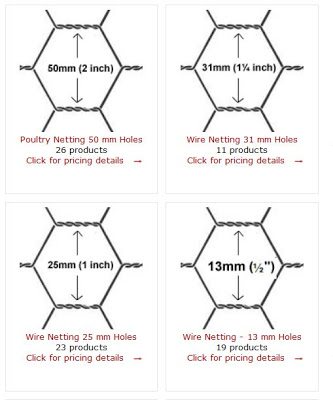
CHICKEN WIRE
Chicken wire, also known as hex netting, is a twisted steel wire mesh with hexagonal openings that can be galvanized or PVC coated.1 A hungry and determined predator, including but not limited to raccoons and some dogs, can tear through chicken wire with relative ease. It is not recommended as security fencing for chicken coops and runs.
Chicken wire is very flexible and good for making temporary structures designed to keep chickens confined, but it will not stop predators from gaining access to chickens.
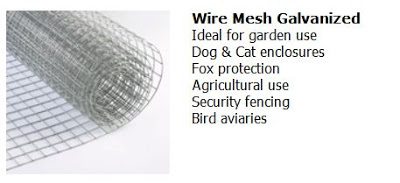
HARDWARE CLOTH
Hardware cloth is wire mesh that consists of either woven or welded wires in a square or rectangular grid that is available in galvanized, stainless steel and bare steel.2 It is manufactured from a stronger gauge metal than chicken wire, (the smaller the gauge, the stronger the mesh) making it a much better choice for flock protection. 1/2″ to 1/4″ galvanized hardware cloth is typically recommended for coops and chicken runs.

HARDWARE CLOTH INSTALLATION BEST PRACTICES
1. Bury hardware cloth to deter diggers. To protect chickens from predators such as raccoons and dogs, hardware cloth should be buried at least 12 inches into the ground around the perimeter of the coop and run OR buried underneath the floor of the coop and run.
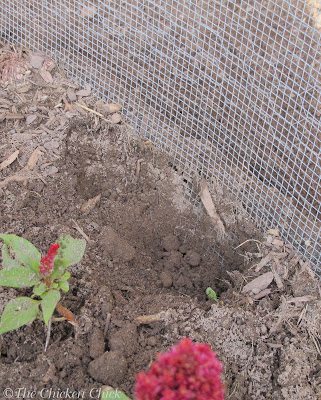
2. Cover all windows with hardware cloth.
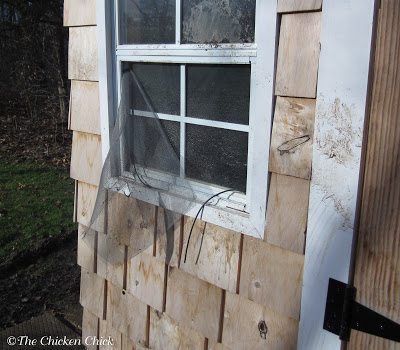
3. Secure hardware cloth with screws and washers. Staples are easily defeated by pushing or pulling.
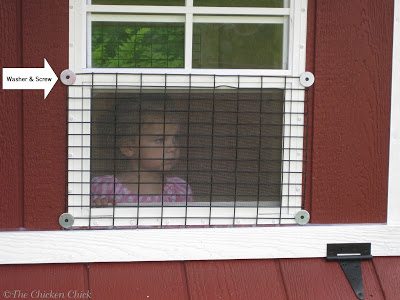
4. Seal all openings larger than one inch with hardware cloth. Minks and weasels can squeeze through very small openings and kill many chickens in a very short period of time.
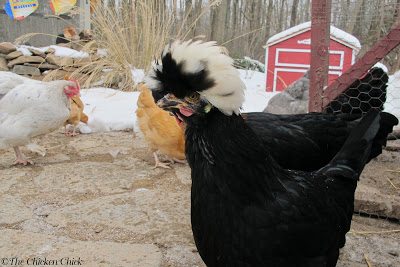
Sources:

1 Direct Metals
2 Direct Metals
Both illustrations of chicken wire and hardware cloth are from meshdirect.co.uk
Kathy Shea Mormino
Affectionately known internationally as The Chicken Chick®, Kathy Shea Mormino shares a fun-loving, informative style to raising backyard chickens. …Read on


shop my SPONSORS
Early in my chicken-keeping adventures, I learned the hard way that there is a big difference between chicken wire and hardware cloth. I now understand that chicken wire is intended to keep chickens confined to an area, not to prevent predators from reaching chickens. My failure to appreciate the differences prior to constructing our first run was costly and my hope is that others can learn from my mistake.
I was no more than 5 weeks into chicken-keeping when I saw the hawk pictured above, peering in at my new pets. Feeling confident that my flock was locked safely in their run, I dashed to grab my camera to snap this shot. What I did not know at that time was that he had already reached through the chicken wire with his razor-sharp talons, taking the life of one of my 5 week old Silkies. We immediately reinforced the run with hardware cloth and no predator has breached our coops’ security since then.
When considering fencing options for the coop and run, as a general rule, the smaller the openings and the lower gauge the metal, the better security it will provide. This hawk was able to reach in through the large holes of the chicken wire to grasp the chick, a feat he would not have succeeded in had there been hardware cloth in place. Hardware cloth is more expensive than chicken wire, but the initial investment is priceless given the heartache and financial losses it can ultimately prevent.

CHICKEN WIRE
Chicken wire, also known as hex netting, is a twisted steel wire mesh with hexagonal openings that can be galvanized or PVC coated.1 A hungry and determined predator, including but not limited to raccoons and some dogs, can tear through chicken wire with relative ease. It is not recommended as security fencing for chicken coops and runs.
Chicken wire is very flexible and good for making temporary structures designed to keep chickens confined, but it will not stop predators from gaining access to chickens.

HARDWARE CLOTH
Hardware cloth is wire mesh that consists of either woven or welded wires in a square or rectangular grid that is available in galvanized, stainless steel and bare steel.2 It is manufactured from a stronger gauge metal than chicken wire, (the smaller the gauge, the stronger the mesh) making it a much better choice for flock protection. 1/2″ to 1/4″ galvanized hardware cloth is typically recommended for coops and chicken runs.

HARDWARE CLOTH INSTALLATION BEST PRACTICES
1. Bury hardware cloth to deter diggers. To protect chickens from predators such as raccoons and dogs, hardware cloth should be buried at least 12 inches into the ground around the perimeter of the coop and run OR buried underneath the floor of the coop and run.

2. Cover all windows with hardware cloth.

3. Secure hardware cloth with screws and washers. Staples are easily defeated by pushing or pulling.

4. Seal all openings larger than one inch with hardware cloth. Minks and weasels can squeeze through very small openings and kill many chickens in a very short period of time.

Sources:

1 Direct Metals
2 Direct Metals
Both illustrations of chicken wire and hardware cloth are from meshdirect.co.uk





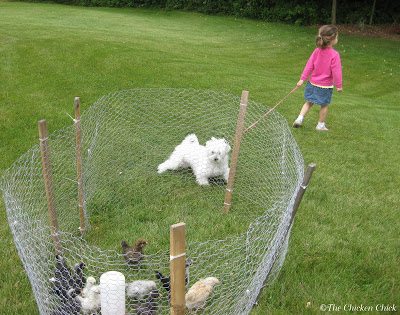







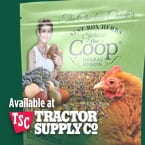

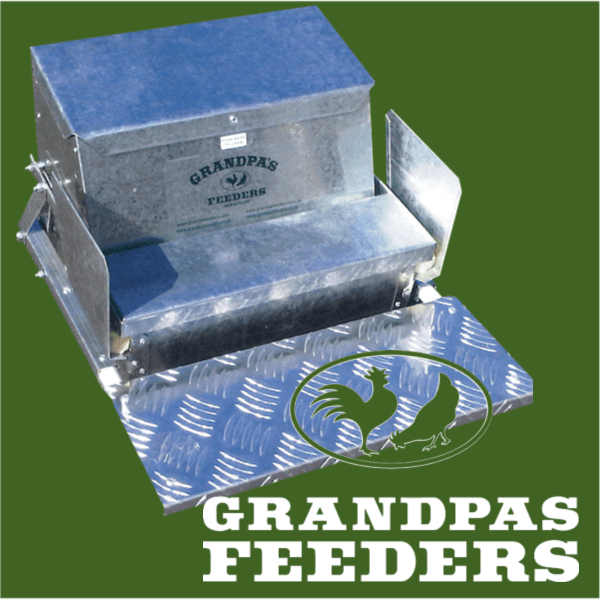






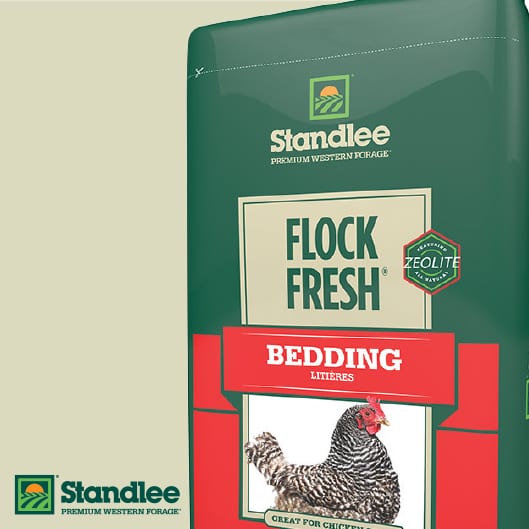
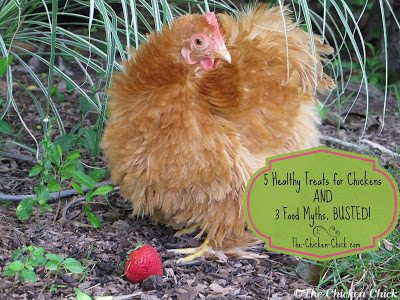















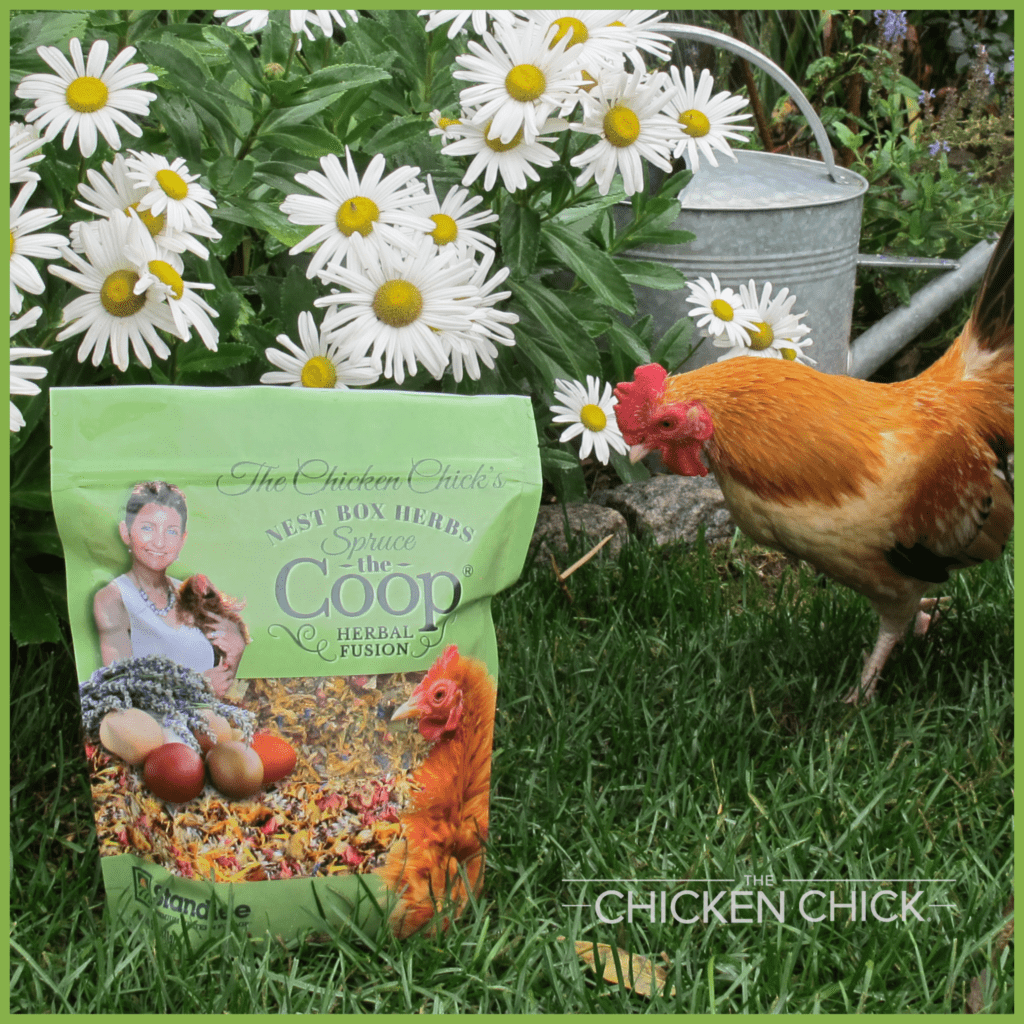

Any tips for keeping the girls safe from Hawks when they are free ranging in the backyard?
Thank you for the reply. Yes, I at first thought weasels weren’t really in this area but after some research they are here but very rare. But I read they can fit in a spot only 1/4 an inch. So that night, in the pouring rain, I covered the whole run in hardware cloth. Put large concrete blocks all around the edges and put hard loose rock concrete around their house. So far nothing has even tried from what I see. Last night chased some raccoons out of the goat shed and chased away a coyote. Never a dull moment.… Read more »
I’m sorry for your loss, Dan. Weasels are a more likely culprit. Ultimately, it doesn’t matter which predator got in, you have to shore up so that nothing can get in.
Why wasn’t my post approved?
Thanks for all the great info. I just finished a new coop for my four large girls so I can introduce 4 new chicks into the old coop. I had buried 1/4 hardware cloth under the entire house and run extended out about a foot on all sides. It is only about an inch deep. Then I put chicken wire over the entire run. Needless to say I wish I had used hardware cloth. This morning woke up to my first dead bird ever. There were no holes in the chicken wire. Something had dug under the run but there… Read more »